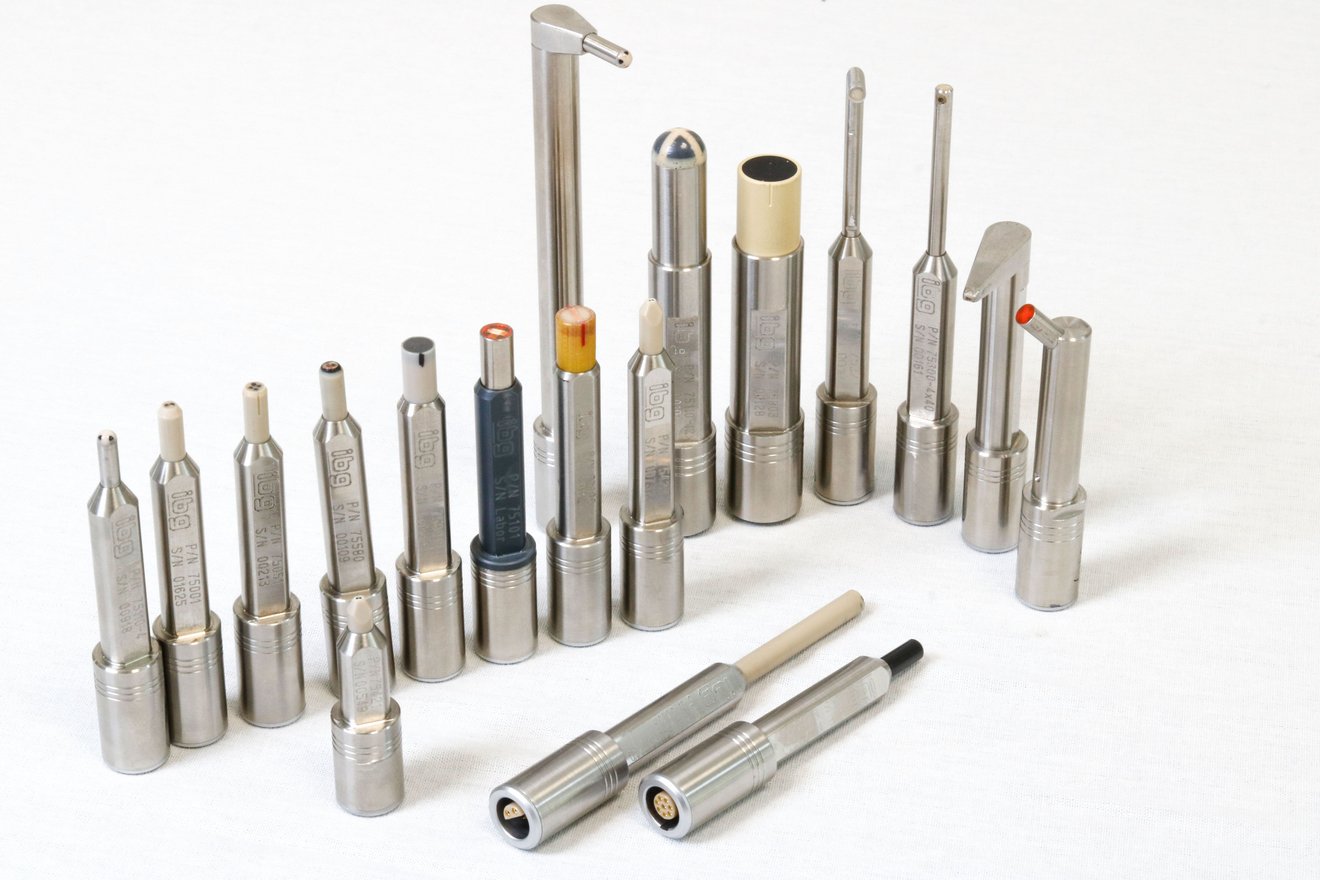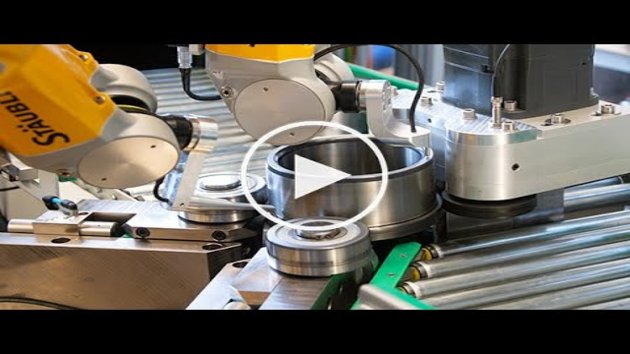Optimized Crack and Grinder Burn Test Probes for Your Unique Needs
Precision Probe Manufacturing: Decades of Expertise and Innovation
Manufacturing of coils and probes is a science in itself and requires years of experience in addition to theoretical knowledge. At ibg, our probe manufacturing team can rely on more than three decades of experience. We concept, design and test all sensors for structure and crack detection inhouse to ensure the right sensor for your application will be found.
The production of crack detection probes is very complex as microscopically small parts and the finest wire must be assembled and mounted. Wherever possible we recommend standard probe types due to lower prices and short delivery. Most of our probe types are provided in standard versions.
Custom-Designed Probes: Tailoring Solutions for Unique Testing Needs
Certain applications and test systems need probes that are specially designed for that test task, e.g. when testing rough surfaces, teeth, and spline areas as well as inaccessible test locations like the inner diameter of hubs. There are hardly any limits to the layout of the probes. Besides the electro-technical optimization, we pay particular attention to ease of installation and mechanical high precision. We are pleased to help you with special probes tailor-made for your application and test system, and in need of that specific probe at a later date, you can count on the shortest delivery times. We are aware of our responsibility for your production flow.

Enhancing Sensitivity: The Advantages of Differential Probe Technology
The differential probe principle reduces the very large receiver signal almost to zero by the use of two compensating counter-rotating receiver windings. This enables high amplification of small signals without overloading the input circuit of the test instrument. And a differential probe is much more tolerant for distance variations (lift off) between the probe and test part surface as well as for influences from hardness/microstructure patterns than absolute probes.
Furthermore, we make high demands on the precision of our probe manufacturing in order to enable high amplifications. ibg instruments employ extremely low noise signal processing, the earliest possible digitalization, and smart signal processing in order to achieve the best evaluation at high amplifications.
Optimizing Sensitivity and Probe Distance: The Versatility of ibg Crack Detection Probes
This combination of a high flaw signal amplification and a very low noise signal processing allows for a realistic probe to test part distances without loss of sensitivity. As a manufacturer of test systems, we know that a large probe distance eases the design of a highly sensitive but at the same time mechanically insensitive test system. Most of ibg crack detection probes are designed for a 0.7 mm lift-off from the test surface and can manage crack specifications which other instruments only guarantee with a hard-to-realize 0.2-0.3 mm probe distance.
In a feasibility study, we determine the best probe for your application. Several probe types are available like Standard probe, Micro probe, X-probe, Spherical X-probe, T-probe, Multi-Differential (four core) probe, and Phi-probe with trace width from 0.5 to 13.0 mm or High Frequency probes up to 10 MHz. We also can provide individual probe heads (combining a number of single probes) to inspect larger test areas. The whole range is rounded off with probes for testing teeth, parts surfaces with grooves or turning marks as well as lift-off compensation probes for parts with eccentricity more than +/- 0.1 mm in front of our probe.
Contact Us

